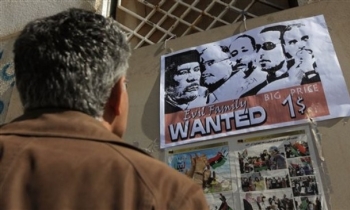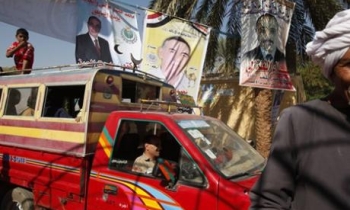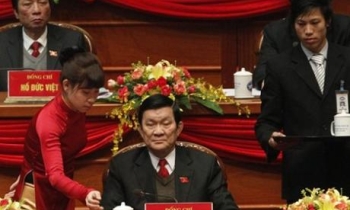ARTICLE 19 has celebrated its twentieth anniversary with the launch of a groundbreaking publication Speaking Out for Free Expression in
London.
Since its inception, ARTICLE 19 has been a bold voice in defense of freedom of
expression. Upholding the Universal Declaration of Human Rights, the organisation’s primary aim is to hold governments and other powerful actors to account when they fall short of their obligations to protect free speech.
Set against the backdrop of dramatic world events, Speaking Out for Free
Expression charts the course of free expression over the past two decades. It offers a compelling story of 34 countries in five regions, and essays by international experts, comparing today’s reality with the situation for free expression two decades ago.
“Our twentieth anniversary compendium celebrates the advances made for free
speech in many countries, while also pointing to the newer terrains of struggle,â€
comments Dr. Agnès Callamard, ARTICLE 19 Executive Director.
Its foreword has been jointly written by four special rapporteurs on freedom of
expression from the United Nations, the Americas, Africa and Europe. Also weighing in with expert opinions are Reporters without Borders, the Committee to Protect Journalists, Privacy International, UNESCO, the World Association of Newspapers and the American Civil Liberties Union, among others.
Since 1988, the world has been altered immeasurably both by the revolution in
information technology and by the ending of the Cold War, which opened up a
plethora of newly democratised states. Together, these forces have completely
transformed people’s means of and access to expression, information and
communication, particularly with the advent of internet and the spread of mobile
phones.
Yet today, freedom of expression remains under threat. The global war on terror launched in 2001 has rolled back freedom of expression and speech in many well established and emerging democracies. ARTICLE 19 is at the forefront of efforts to protect these hard-won freedoms and Speaking Out for Free Expression demonstrates unequivocally the need for constant vigilance.
“It is extremely poignant to be commemorating our twentieth anniversary at the same time as the world celebrates the sixtieth year of the Universal Declaration of Human Rights,†says Callamard. “It reminds us that free expression underpins all other civil, political and economic rights and is the very oxygen of genuine democracy.â€
Baroness Frances D’Souza, ARTICLE 19 Executive Director (1990-1999), echoed similar sentiments on the curtailment of freedom of expression. He felt that the bad old days are still not over. There are new threats to freedom of expression and even proposed solutions which infringe the principles upon which democracy rests. He added that they are living in worrying and “dangerous times,†challenged by the new urge to limit migrants and asylum seekers, the open espousal of racism and xenophobia and the absence of a concerted resistance to religious terrorism.
A decade ago when he wrote for ARTICLE 19, they were concerned with religious and racial intolerance (remember Salman Rushdie?), war propaganda (Rwanda and Yugoslavia), national security- which infringed people’s right to freedom of expression and to the existence of free media. These concerns, while shifting somewhat, are still on the agendas of ARTICLE 19.
Professor Kevin Boyle, ARTICLE 19 Founding Director (1987-1990), considered the occasion of ARTICLE 19’s 20th year of campaigning as a good opportunity to address some of the important themes.
In terms of the its origin, ARTICLE 19 was the brainchild of one person, the US entrepreneur, philanthropist and civil rights activist John Roderick MacArthur. He wanted to see an international NGO established that would take a human rights and campaigning approach over censorship as much as Amnesty International was doing for prisoners of conscience. He died in 1984 but his children, Rick, Solange and Greg MacArthur, who became trustees of the J. Roderick MacArthur Foundation, determined to pursue their father’s dream of creating an international anti-censorship NGO. They turned for advice to Aryeh Neier, the New York civil rights lawyer and former director of the American Civil Liberties Union (ACLU), who was then active in the growing Helsinki Watch movement. Aryeh Neier in turn commissioned Martin Ennals in London, former director of Amnesty International, to develop a proposal for the new NGO. 1987 was the first full year that ARTICLE 19 undertook its work and its first campaign was on behalf of Zwelakhe Sisulu, the South African editor of the black-run newspaper New Nation, who was detained without trial by the apartheid government one month after his election as a Board member.
The early partners and supporters of ARTICLE 19 played a significant role in its establishment. For instance, the commitment of the J. Roderick MacArthur Foundation to support the new NGO financially in its early years was instrumental in ARTICLE 19’s establishment. Rick MacArthur, publisher of Harper’s Magazine, Lance Lindblom, then chief executive of the Foundation, and Randall Warner, publicist, worked hard to launch the NGO and to promote it, especially in the USA. Another early partner was the Committee to Protect Journalists (CPJ) established by a group of US foreign correspondents in solidarity with journalist colleagues elsewhere who suffered abuse and restriction at the hands of authoritarian government. Yet another early partner from continental Europe was Reporters Without Borders established in 1985 in France. A closer relationship naturally developed with Index on Censorship and with International PEN. Amnesty International, which in the late 1980s had emerged as the leading membership- based human rights NGO in the world was also supportive.
ARTICLE 19 was named after the 19th article of the Universal Declaration of Human Rights. It had helped to make that Declaration, and especially its freedom of expression clause, very much better known in the world. The argument for the chosen name was that the language of Article 19 of the Universal Declaration encapsulated exactly the international definition of the right to freedom of expression that the new group would work for. Thereafter, the name had gone through a number of permutations. In 1989 it expanded to become ARTICLE 19, the International Centre on Censorship. This title in turn was later modified to the International Centre against Censorship before its current full name ARTICLE 19, Global Campaign for Free Expression was adopted at the suggestion of the then director Andrew Puddephat.
In the global information age, ARTICLE 19 seemed an ideal candidate to embrace the standardised information technology and formats pioneered by the group Human Rights Information and Documentation Systems. But the venture proved too ambitious for the budget available. And information gathering problems soon started surfacing.
The organisation was launched at an extraordinary moment – although few recognised it at the time. The momentous event was the Cold War coming to an end. The ultimate collapse of the Soviet Union, which in turn undermined the anti-communist postures of repressive regimes including apartheid South Africa, created a new global context where the cause of human rights was able to advance in ways not possible during the long Cold War. The geo-political environment in 1993 Vienna World Conference on Human Rights, allowed ARTICLE 19 not only to advance the importance of freedom of political expression, but also to argue for the relevance of freedom of expression for the new challenges of building democratic societies in ‘transition countries’ and advancing the development of the poorest countries. The organisation from the outset embraced the indivisibility and interdependence of human rights.
ARTICLE 19’s singular contribution against this background has been to work within the agreed legal norms and seek to strengthen them incrementally at the universal as well as at the regional and national levels. The first priority from the beginning of ARTICLE 19 was to address the question of limitations. Limitation or restriction on freedom of expression is legitimate and the right to ‘seek receive and impart information and ideas’ In its consultations and publications on such limitations as defamation or national security the organisation has contributed to the development of international law.
Professor Boyle concluded by considering ARTICLE 19 as the organisation which will be needed to defend and further entrench in our world the vision expressed in Article 19 of the Universal Declaration of Human Rights. “Even if the challenges to freedom of expression change, the need for an organisation to offer principled responses and to champion victims of censorship remains constant.â€









